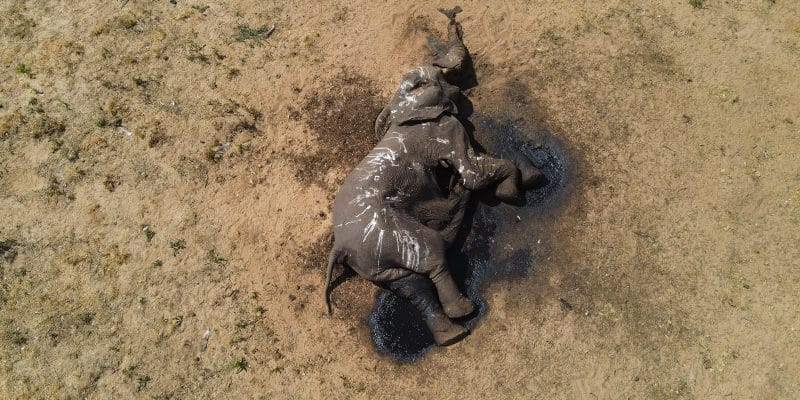Protected from poaching, the world's largest elephant population is threatened by drought. According to the International Fund for Animal Welfare (IFAW), at least 100 elephants have died in Hwange National Park, Zimbabwe's largest nature reserve.
Zimbabwe’s summer rains have been delayed by around five weeks, due to the El Niño phenomenon (which results in a rise in surface water temperature). In the Hwange National Park, which covers some 15,000 square kilometres in the north-west of the country, many formerly abundant waterholes have turned into muddy puddles. The nearly 45,000 elephants in the protected area have suffered severe water stress. Exhausted by the lack of water, dozens of them have died.
“At the end of the dry season, the elephants are always weakened. During the dry season, the elephants always stay around the waterholes, feeding on the surrounding vegetation, so the longer the dry season lasts, the further they have to travel from the waterholes to eat and come back to drink. So if the dry season is prolonged, the distances they have to travel become too great and the elephants become weaker and some end up dying”, explains David Germain-Robin of the International Fund for Animal Welfare (IFAW).
The organisation points out that the 104 solar-powered water boreholes in Hwange Park were not sufficient to cope with the extreme temperatures that are drying up the existing water points, forcing the animals to travel long distances in search of food and water. “At least 100 elephants have already died due to the lack of water,” laments IFAW.
Read also-NAMIBIA: Government to sell 200 drought-threatened elephants
The news that elephants are in peril in Zimbabwe came as the 28th United Nations Climate Change Conference (COP28) drew to a close in Dubai, United Arab Emirates (UAE). During the negotiations, Ifaw highlighted the devastating impact of climate change on wildlife and human beings. “Wild animals prevent carbon, already stored in nature, from being released into the atmosphere and help nature to absorb and store even more carbon”, explained Phillip Kuvawoga, director of Ifaw’s Habitat Conservation programme. The organisation is calling for an integrated and holistic approach to support habitats and communities that are resilient to climate change.
Boris Ngounou







